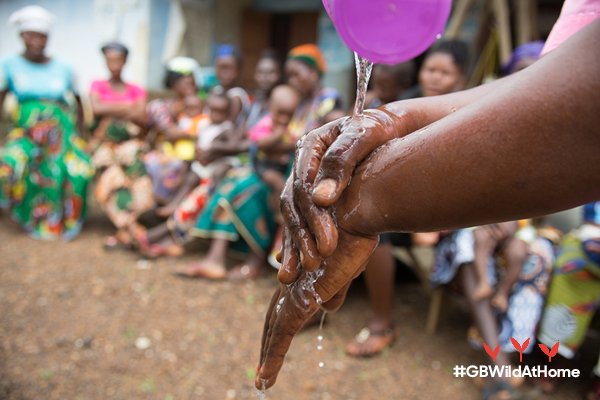A blog from our main partner Christian Aid in this, Christian Aid Week.
In humanitarian camps like the ones in Maiduguri in Northern Nigeria, where thousands have been displaced from their homes and live in cramped conditions, social distancing is impossible.
As the UK government embarks on the first steps towards reversing the lockdown that has kept us all inside our homes for the past few weeks, at Christian Aid our hearts have turned towards those in some of the most challenging places on earth for whom any such outbreak will be catastrophic.
This global crisis has taught us that we – every country in our world – need each other more than ever. Coronavirus will not be ended unless it’s eradicated in every continent.
This means we have got to look out for those whose voices are not often heard on global stages – the poorest and most marginalised communities in the countries in which Christian Aid works, those who are the least protected with the most underdeveloped health systems; those who do not have anything like the NHS to treat them when they fall ill, and where there is no social protection, where governments do not pay for employees’ wages in order to get businesses through difficulty.
A threat to others is a threat to us all, and we help ourselves by helping others. Protecting ourselves locally means we need to act globally.
This week, Christian Aid is releasing a report that examines the situations and the solutions for vulnerable adults and children in South Sudan, Sierra Leone, Bangladesh and Israel and the occupied Palestinian territory where the need for imaginative cross-border solutions could not be more stark.
This is Christian Aid Week – the UK’s longest-running fundraising week – which every year unites 50,000 volunteers, 12,000 churches and more to give, act and pray for the world’s poorest. Like everyone, we’re having to do things a little differently this year, accelerating the work we’d already been doing on digital because we’re more convinced than ever that we need to respond quickly to help the most vulnerable.
We have repurposed our resources and our work in 17 countries already so rather than focusing on everything we normally do, we’re working on our coronavirus response, focussing on two things: prevention and containment. Christian Aid is working with communities and churches to provide soap and running water and working with partners on raising awareness, and educating people on how they can protect themselves. We’re drawing on our experience from the Ebola crisis and helping communities to prevent and delay infection. We’re ensuring urgent health messages get through to help keep people safe. We’re working through our networks of church partners and faith-based organisations to reach the most vulnerable at this critical time.
Coronavirus has shown us that our futures are bound more tightly together than ever before. And now it is spreading across the world’s poorest countries, putting people living in poverty at great risk. These people are already facing a lack of water, food and healthcare. Some are homeless. Some are living with underlying health issues such as HIV.
In Bangladesh, we’re helping Rohingya refugees living in overcrowded camps understand the risks and take precautions by sharing hygiene messages in their local languages and offering handwashing sessions.
In Nigeria, we’re working to ensure safe distributions of food can continue for displaced people living in camps.
As coronavirus infection rates speed up, they will feel the impacts of the virus deeply. We must respond now. Coronavirus impacts all of us. But love unites us all.
Together with our local partners, we are working quickly to limit the impact of coronavirus in some of the most vulnerable communities around the world.
With your help we can do even more.
Check out this video featuring friend of Greenbelt Rev Kate Bottley as she encourages support for Christian Aid Week.
The photo at the top of the blog shows a hand-washing clinic run by Judith Lassie in the village of Sawula, Sierra Leone. Christian Aid’s partner RADA provides water buckets and soap. Mums learn how they and their children can wash their hands and prevent the spread of diarrhoea.
Photo credit: Christian Aid/Tom Pilston, September 2018
.


